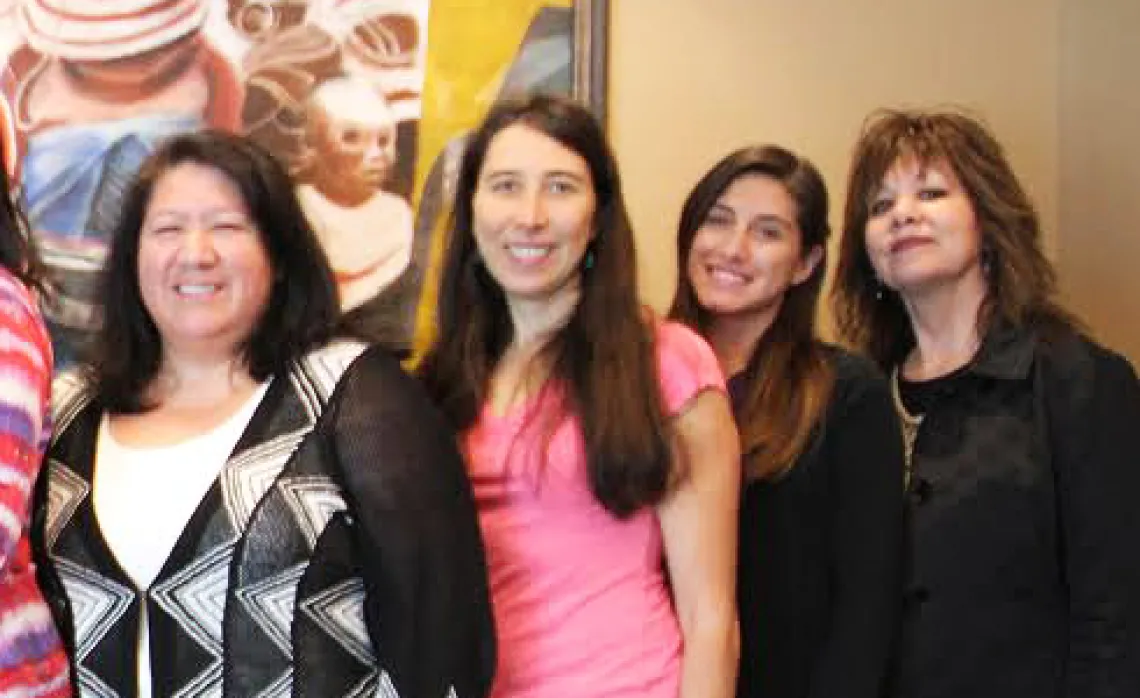NNI Hosts Research Convenings on "Indigenous Social Determinants of Health" and "Data & Sovereignty"

As part of its Tribal Health Program and its project Beyond "Health Care": Community, Governance, and Culture in the Health and Wellness of Native Nations, the Native Nations Institute (NNI) convened two day-long meetings with collaborators to expand upon important ideas that have emerged from the research.
On February 17-18, 2015, NNI Tribal Health Program Manager Stephanie Carroll Rainie led a meeting focused on Indigenizing the conversation about social determinants of health. Participants discussed what defines a healthy Native community and how Native epistemologies and community action perspectives inform that view.
On March 3-5, 2015, NNI Senior Researcher Jennifer Schultz facilitated a meeting focused on tribal data agendas. Participants addressed considerations for tribes, including reasons and methods for gathering high-quality and culturally relevant information about their communities. (Read Schultz and Rainie's latest work on the subject here.)
The Beyond "Health Care" project is supported by the W. K. Kellogg Foundation and theMorris K. Udall and Stewart L. Udall Foundation. Both invitation-only meetings were organized and hosted by NNI staff and convened on The University of Arizona campus.
Udall Center Director and NNI Faculty Associate Stephen Cornell was an invited presenter at the Opportunities and Challenges to Providing Health Care in Indian Country CLE Conference on February 26-27, 2015, in Tempe, Arizona. The conference offered tribal health care experts and tribal leaders a forum in which to discuss complex legal and policy issues facing tribal communities in an increasingly sophisticated and complicated health care landscape. Prof. Cornell's presentation, "Reconnecting Cause and Effect in Tribal Health Care," emphasized opportunities for Indigenous health and wellness advances through greater community control ---- which, broadly understood, is the power and freedom to shape community life and health care services. Cornell asked, "What would our health-care initiatives look like if we started from the community and worked toward the individual instead of the other way around? How might that change the politics and economics of health care in Indian Country?" NNI Tribal Health Program Manager Stephanie Carroll Rainie also attended the conference.

